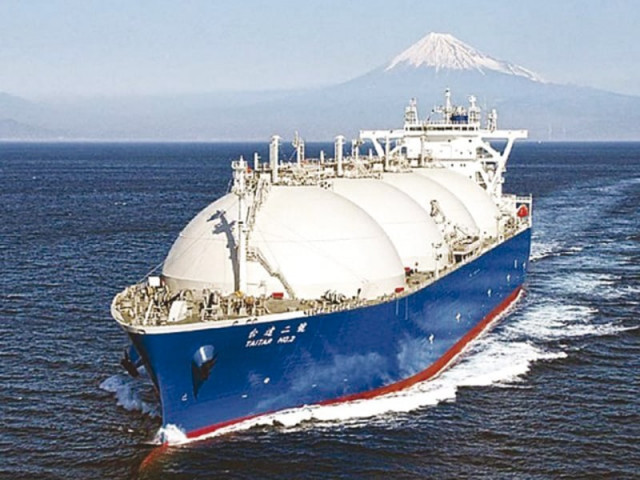ECC may approve LNG allocation for CNG industry
Petroleum ministry also seeks go-ahead for regulating LPG prices.

The Economic Coordination Committee (ECC), which is scheduled to meet today (Tuesday), is likely to clear the way for a plan to allocate some liquefied natural gas (LNG) imports to compressed natural gas (CNG) filling stations and save domestic natural gas for power plants, officials say.
The plan, if approved, will help divert 628 million cubic feet of natural gas per day (mmcfd) to the power plants in an effort to increase electricity production and control hours-long outages that have shaved 3% off economic growth every year.

The move is aimed at saving the CNG industry that has invested Rs450 billion, but is on the brink of financial collapse, especially in Punjab.
“A plan is under study to supply LNG to CNG stations with some incentives. The ECC will take up this proposal in its meeting on Tuesday,” said Petroleum and Natural Resources Minister Shahid Khaqan Abbasi while talking to The Express Tribune.
Officials of the petroleum ministry point out that the government wants to provide cushion to the CNG industry with which about 300,000 skilled and unskilled workers are directly associated and 150,000 people are indirectly related. At present, about 3.7 million vehicles, equipped with CNG conversion kits, run on gas.
The ministry has also set out a plan of fiscal incentives including exempting imported LNG from sales tax and gas infrastructure development cess (GIDC) to make it affordable and keep a 30% difference between prices of petrol and CNG.
Currently, all bulk buyers of natural gas are paying GIDC at the rate of Rs300 per million British thermal units (mmbtu) and 17% sales tax.
“This plan will promise 24-hour gas supply to the consumers against only 72 hours a month these days with 30% cheaper cost compared to petrol,” a ministry official remarked. The ECC will also take up another proposal of the petroleum ministry that calls for regulating liquefied petroleum gas (LPG) prices in the country.
The government plans to set aside the decision, taken by the Musharraf administration, to deregulate the LPG business and could take over control of the market by fixing gas prices.
In the new policy, it is considering setting the LPG price, currently in the range of Rs90 to Rs130 per kg, at Rs84.6 in a bid to provide relief to the consumers, sources say. Marketing and distribution margins are expected to be fixed at Rs25 per kg.
According to the proposal, locally produced LPG will not be consumed in vehicles and industries. Accordingly, LPG fuel stations as well as industry will have to use imported LPG.
In the budget for 2014-15, the government has set Rs1 billion target for the collection of petroleum levy from LPG consumers. Though LPG is considered a poor man’s fuel, it is priced 20 times higher than natural gas for domestic consumers.
Under the regulated mechanism, the producer price including excise duty will be fixed at Rs47,350 per ton against current price of Rs65,500, marketing and distribution margins at Rs25,000 per ton, consumer price excluding general sales tax at Rs72,350 per ton and general sales tax at Rs12,300 per ton.
End-consumer price will be Rs84,650 per ton and 11.8kg cylinder will be sold for Rs999. At present, the cylinder costs between Rs1,062 and Rs1,534.
Published in The Express Tribune, August 26th, 2014.
Like Business on Facebook, follow @TribuneBiz on Twitter to stay informed and join in the conversation.


















COMMENTS
Comments are moderated and generally will be posted if they are on-topic and not abusive.
For more information, please see our Comments FAQ